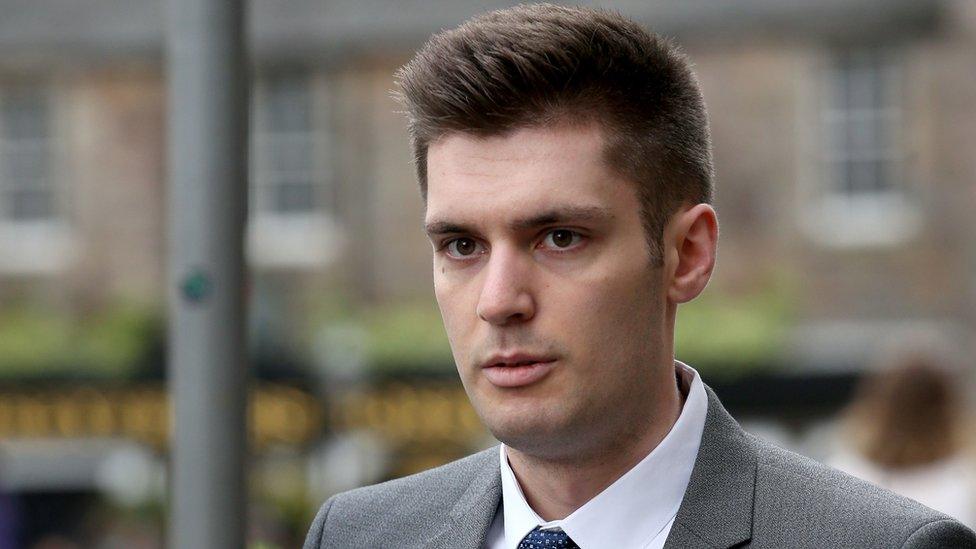Edinburgh hip hop artist raps about rape to help survivors heal
- Published
Bee Asha Singh is an upcoming hip-hop artist in Edinburgh
Edinburgh hip hop artist Bee Asha Singh is no stranger to speaking on stage about how she was raped.
The trauma she experienced in 2016 changed her life completely for a time. Her mood - normally vibrant and full of laughter - hit a new low, her freedom was curbed by a period of agoraphobia and her creativity was numbed as she turned to anti-depressants.
But still, the 26-year-old has found the courage to open up to fans - a move that has encouraged others to open up to her about their own experience of sexual violence.
She said: "I have that experience on daily basis - I talk to people all the time. I don't take other people's experiences on my shoulders but I'm that face they can talk to.
"It gives them that feeling they're allowed to say things without any judgement. I want people to feel ok about saying 'something happened'."
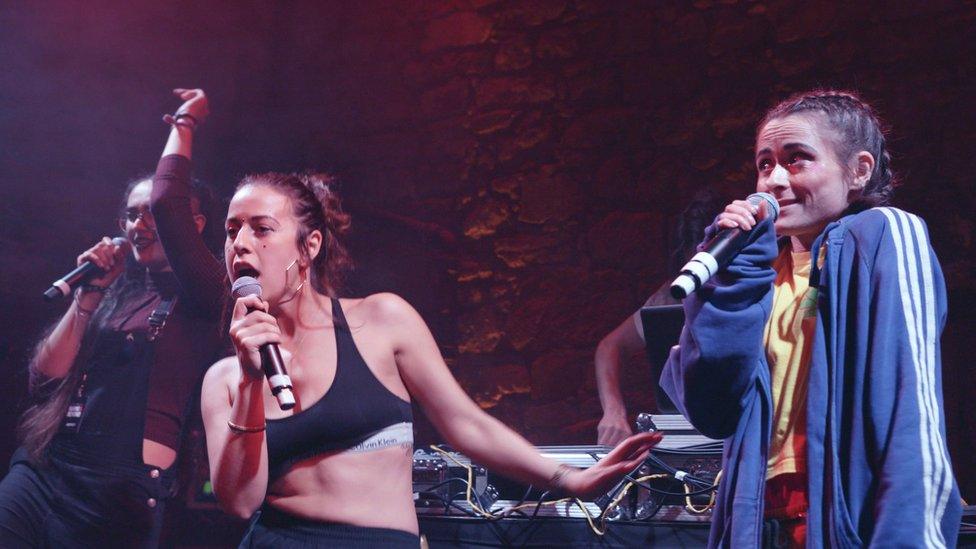
Bee and fellow band mates Gracie Brill and Gael Curran
Bee's willingness to speak out about violence against women has become the focus of a documentary called Spit It Out, which first aired on BBC Scotland last month.
Directed by Lea Luiz de Oliveira and produced by Naomi Spiro of Aruna Productions, the film follows Bee as she writes and performs often brutally raw lyrics on female empowerment, sexuality and autonomy with The Honey Farm - the only all-female hip hop group in Scotland's male-dominated hip hop scene.
But Bee's father finds it difficult to discuss her work and quietly chastises her "cursing" during a car journey after a gig.
Bee told BBC Scotland: "He still has the strong beliefs a Punjabi man would have and he does struggle with my openness.
"I think he has found it really difficult but he's such an incredible man.
"All he wants is what's best for me and he supports me in everything I want to do."
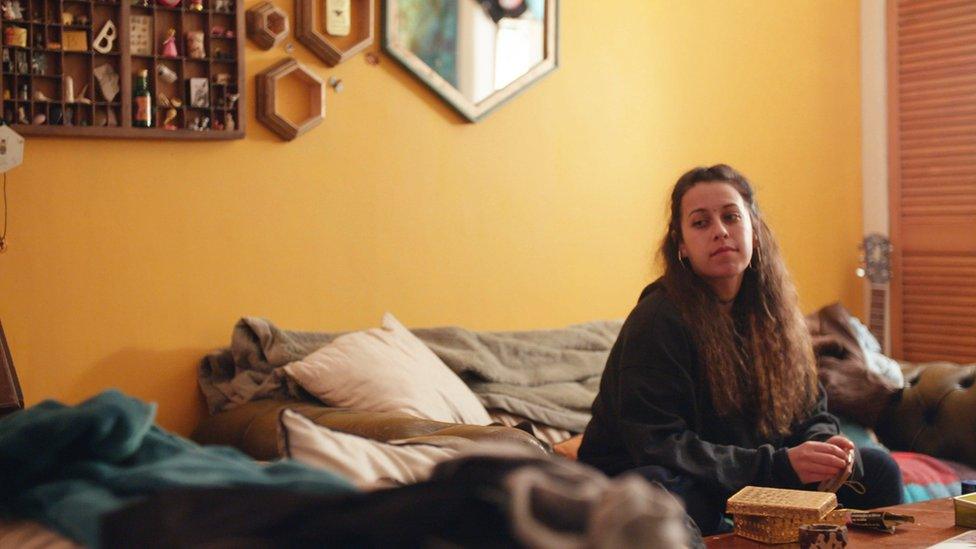
Bee tells how she suffered agoraphobia after she was raped
'I'd just stare at the door'
Spit It Out opens with Bee discussing how difficult she found opening up about being raped.
"After I was raped I couldn't leave the house. I'd just sit in the house day after day and stare at the front door," she says.
"The most difficult thing was dealing with other people's emotions. Am I making them sad by my sadness? I feel like a burden - seeing everyone else's sadness and how they dealt with it and feeling like I had put that upon them.
"I didn't mean to do this but I'm doing it anyway - and it's this other guy's fault."
Bee has known The Honey Farm members - Gracie Brill and Gael Curran - since her school days. Performing with them has been very important to her - but material was increasingly difficult to produce as anti-depressants stunted her lyric writing.
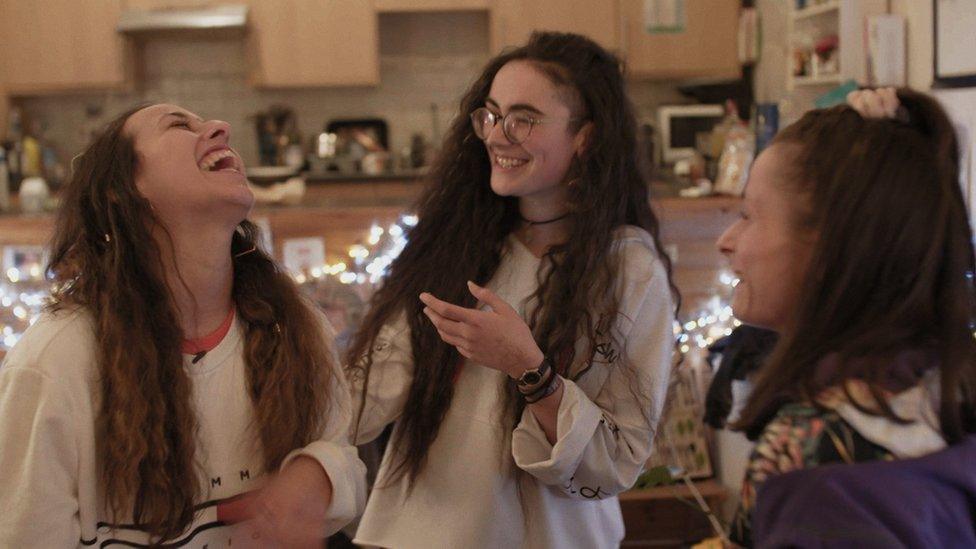
The three friends have known each other since school
She explains: "I have moments of clarity and as soon as I get excited about something or sad about something, the meds kick in and I don't feel anything."
In an effort to revitalise her creativity, Bee decides to wean herself off her medication as she goes on a pilgrimage to India.
Sickness wracks her body as the drugs leave her system, but she discovers strength in turning her pen to the subject of rape.
The journey culminates in a series of powerful solo performances, where Bee brings audiences to tears as she recites poetry on the stark aftermath of being raped, as well as the man who came to help her.
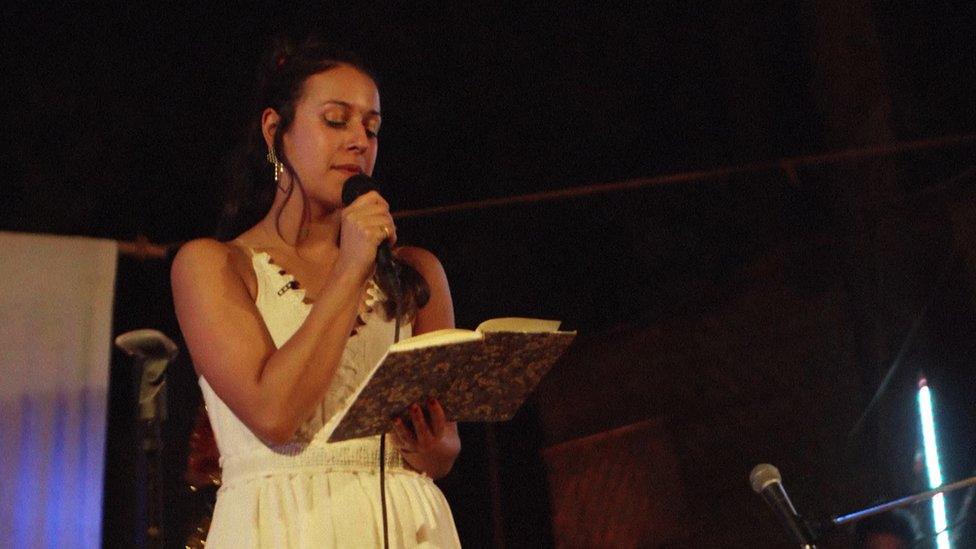
Bee performed her solo poetry for the first time in India
Bee's bond with director Lea Luiz de Oliveira is evident through the film's intimate conversations and the delicate treatment of female trauma. The two met in Edinburgh while Lea was searching for her next documentary and she found herself opening up to Bee about her own experience of sexual assault.
Lea said: "She had no idea what I was going through. She started talking about her own experience and after a while, I had opened up as well.
"It was such a relief - finally there was someone I could talk to. It totally changed my life, I felt empowered and less alone.
"She showed me I could use this experience to connect with others and that we can do something about it."
As Lea shot Bee's movements over the course of a year, producer Naomi Spiro brought Rape Crisis Scotland on board to oversee how the film would treat the subject of rape.
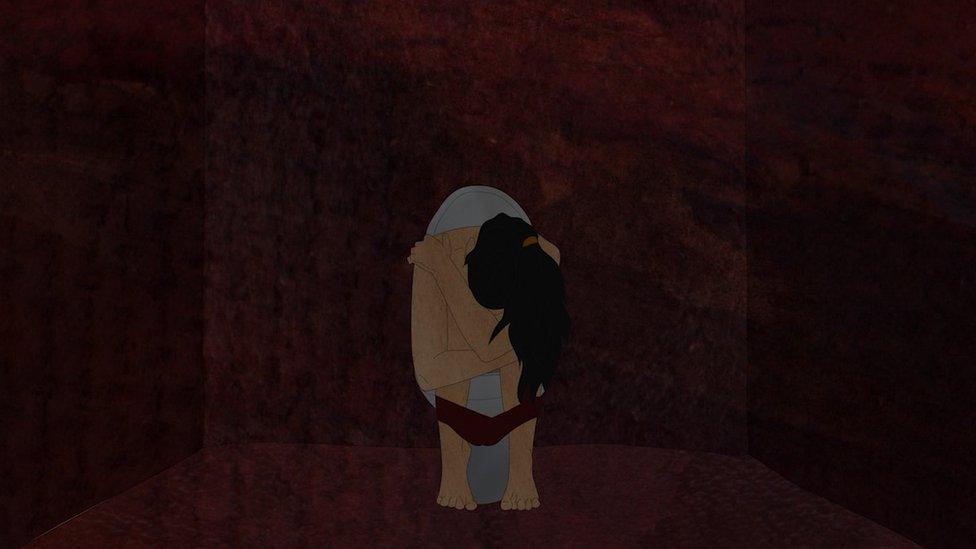
Spit It Out uses a series of poignant artworks to illustrate the reality of rape
Brenna Jessie, press and campaigns officer for Rape Crisis Scotland, said the Spit It Out delivers a "powerful message" to fellow survivors.
She said: "I think this film will resonate with a lot of people and we would love for it to be widely seen by survivors, but also by people without experience of sexual violence.
"Bee shows an extraordinary amount of strength, vulnerability, creativity and determination, and perhaps most importantly of all she rejects the shame and blame that society puts on victim-survivors of rape.
"That is a powerful message, and one that shouldn't be underestimated."
'Secret for 30 years'
Since Spit It Out aired, all those involved in its production have been overwhelmed with positive responses.
Survivors have got in touch to say the film has helped them feel less alone - which was Bee's ultimate goal.
She said: "There has been so much positive feedback, I was at a festival recently and I had loads of folk coming up to me just to say thanks.
"People have told me of their experiences - one person said they had kept it secret for 30 years.
"I've spoken to people who didn't want to leave the house, and people have been feeling that for years.
"Watching the documentary has lifted that feeling for them, even for a moment - that's all you can ask for."
- Published1 March 2019
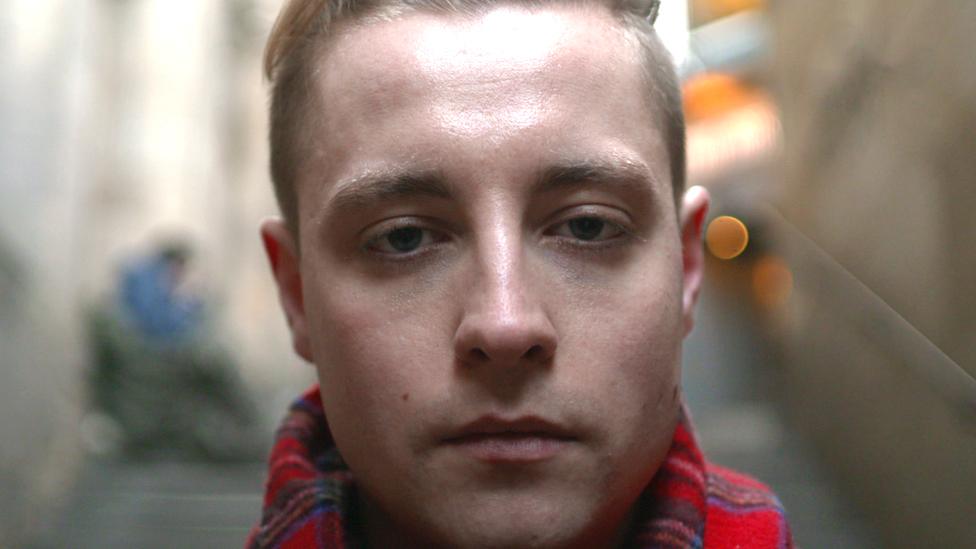
- Published17 May 2019
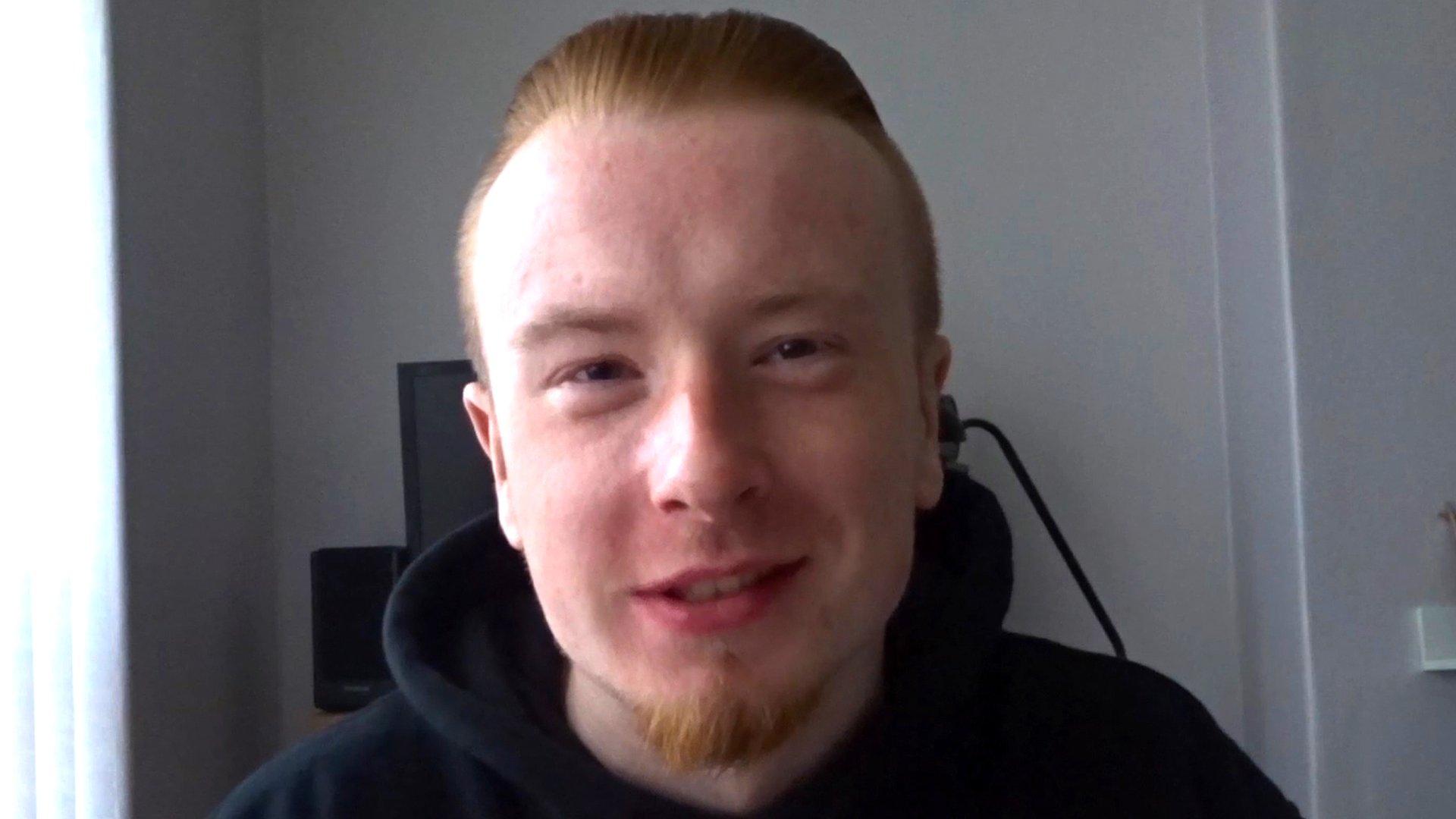
- Published1 May 2019
